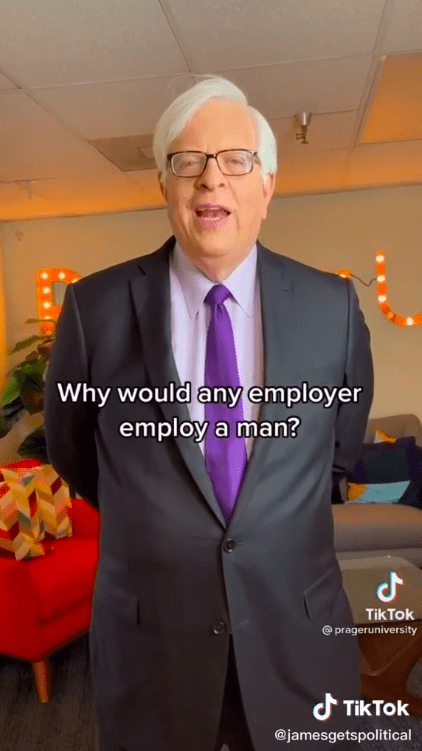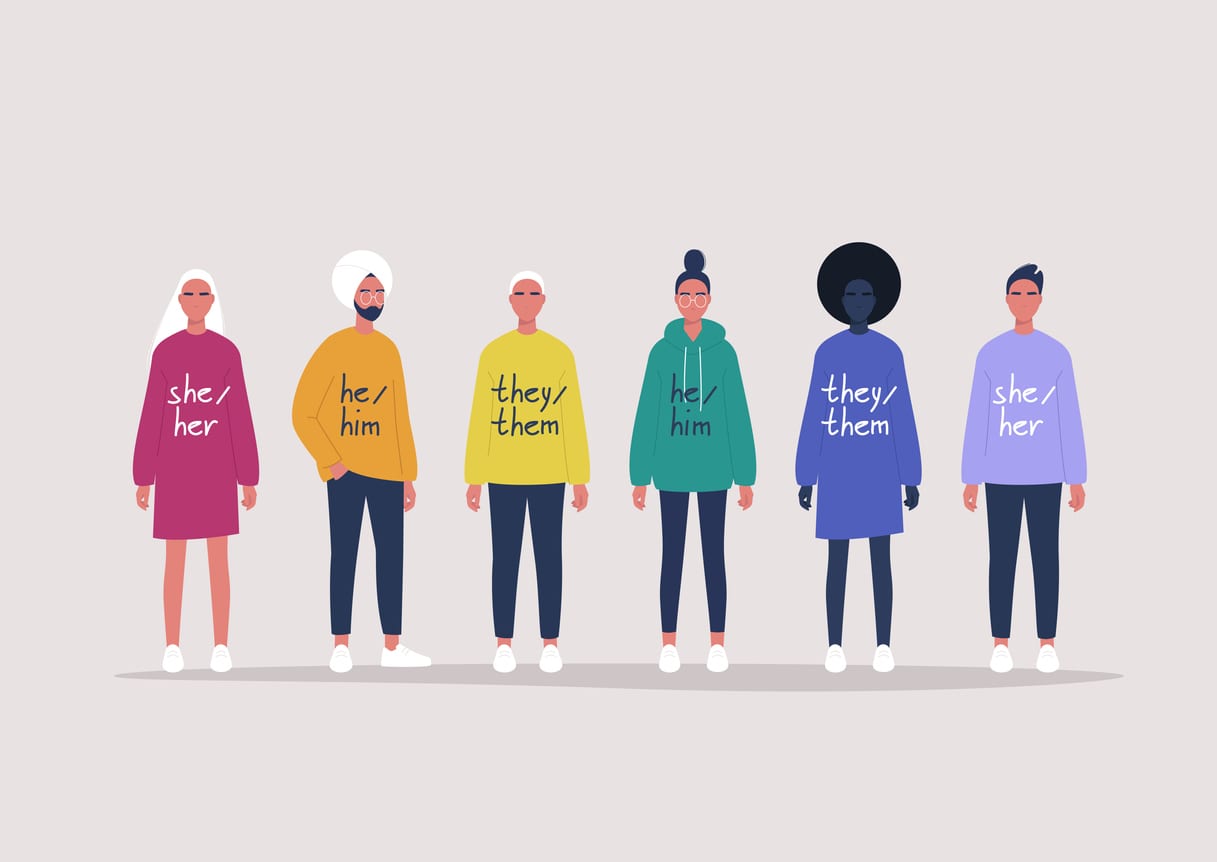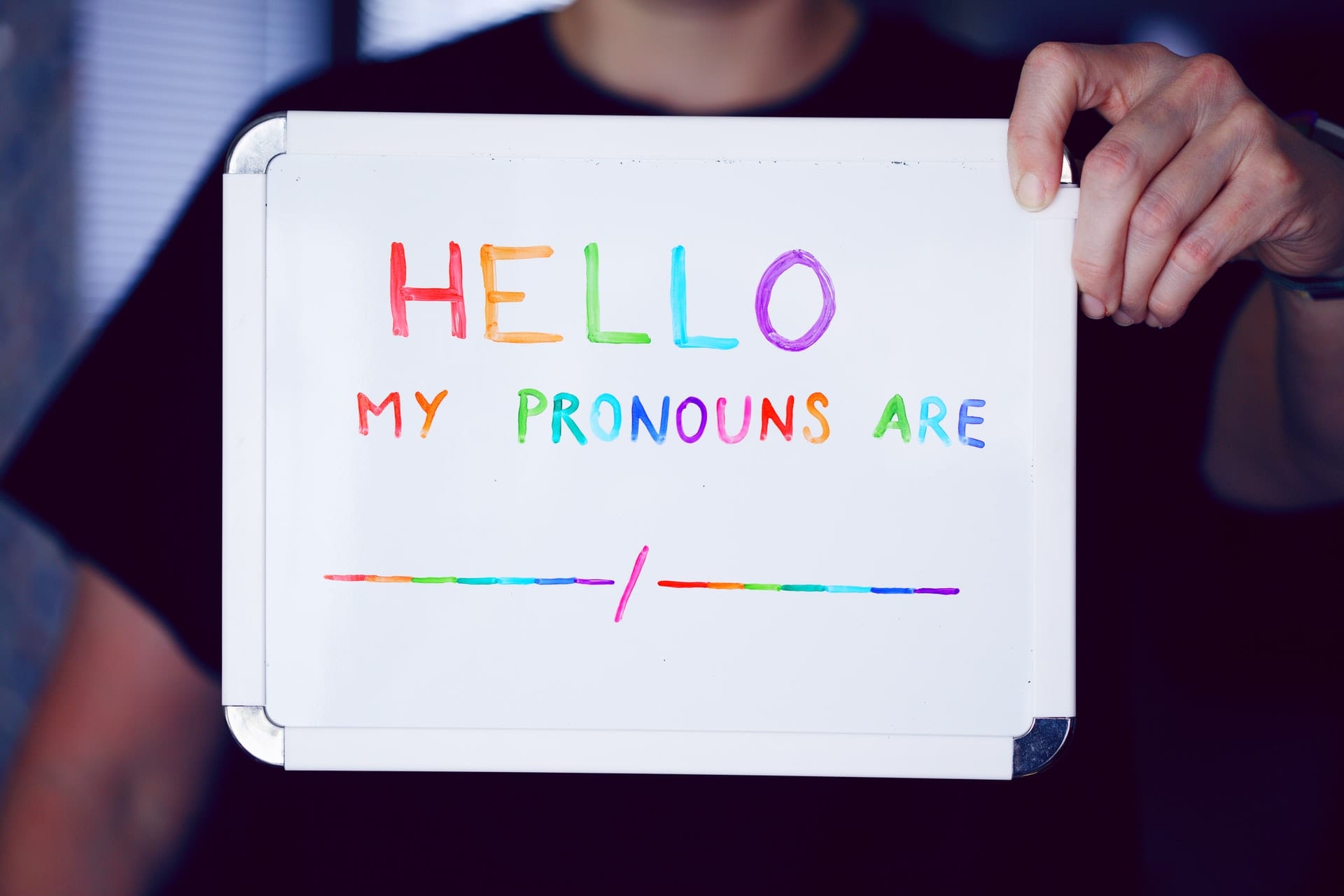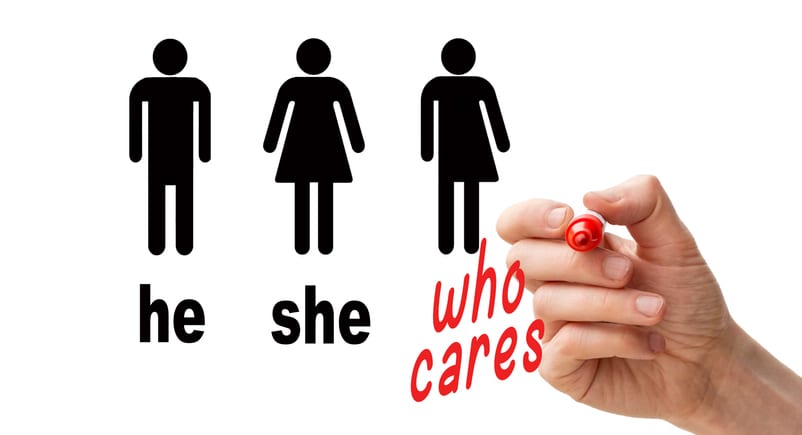People don’t really like to talk about money. Whether because we think it’s rude or because we don’t understand it, as a species, we’re not super comfortable with it.
But most women who have had a conversation with a male coworker on the taboo subject of salary can verify that the gender pay gap is very real. Still, sometimes I guess the world needs a man to prove it.
Like many head-scratching things, the gender pay gap has been turned into a political issue.
So it came as little surprise recently when Dennis Prager, a radio personality and socially conservative political commentator popped off about the issue, describing it as a myth.

Image credit: TikTok
He posted his patronizing bad take on TikTok, but the backlash was so intense that he has since deleted his account.
One response came from James Ray, who uses his account @jamesgetspolitical and his economics degree to combat misinformation on social and political issues.
In his video, which has almost 2 million views and has been shared more than 10 thousand times, James quickly and eloquently explains two reasons the employers still hire men, despite them costing more than women: customer bias and hiring manager bias.
Both often lead to women losing out on jobs to men, or to being paid less when they do land the job.
You can watch the full video here:
@jamesgetspolitical Labor market time
#greenscreenvideo #leftist #liberal #democrat #women #FindYourCore #fyp #4u #reply #politics #usa #money
When interviewed by Bored Panda James explained his video response to Praeger.
“He spews very hateful unfounded rhetoric to his audience and I think the disinformation and overall problematic nature of his content have made me dislike him considerably!”
The artful take-down was not the only one on James’s account, either.
His account is full of critiques of bad takes, like this one, where he explains why popular arguments against a minimum wage increase are silly:
@jamesgetspolitical Econ tea time #greenscreenvideo #leftist #liberal #democrat #politics #usa #fyp #4u #money #ChipsGotTalent #economics #education #lesson #teacher
And this one, about making Washington, DC a state:
@jamesgetspolitical Can we stop treating the founding father’s like Gods idk #greenscreensticker #leftist #liberal #democrat #politics #usa #fyp #4u #TikTokGGT #DC
He also responded to a white dude who was emoting on why everyone’s hating on white dudes:
@jamesgetspolitical #stitch with @itzbengee I actually might know! leftist #liberal #democrat #politics #usa #fyp #4u #history #education #MillionActsofLove
If you are progressive or want to learn about progressive politics, you’ll enjoy his videos.
What do you think of his explanation of the pay gap? Are you ready to join the fight or do you have your own hot take?
Let us know in the comments.
The post This Guy Refutes That the Gender Pay Gap Is a Myth and His Video Went Viral appeared first on UberFacts.



